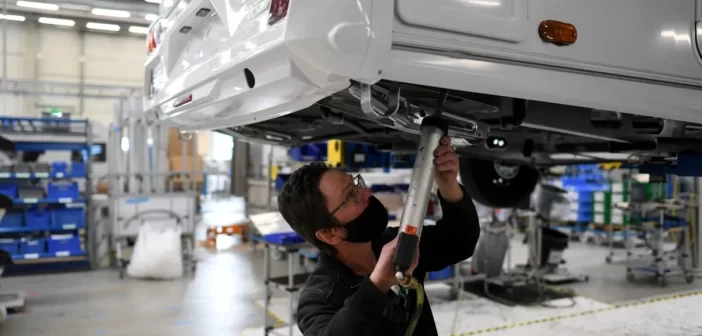Eurozone business activity made a surprise return to modest growth in January, adding to signs the downturn in the bloc may not be as deep as feared and that the currency union may escape recession, a survey showed.
S&P Global’s flash Composite Purchasing Managers’ Index (PMI), seen as a good gauge of overall economic health, climbed to 50.2 this month from 49.3 in December.
January was the first time the index has been above the 50 mark, which separates growth from contraction, since June and the reading was ahead of the median Reuters poll forecast of 49.8.
“The rise in the purchasing managers’ indices is likely to fuel hopes among many that the economy in the euro area might just escape a recession after all,” said Christoph Weil at Commerzbank.
However, Weil added that a clear deterioration in the economic environment continued to point to at least a mild recession.
A moderate winter so far, falling gas prices, and recent positive economic data meant some quarterly growth forecasts in a Reuters poll published on Monday were upgraded although a technical recession was still predicted.
In France, the bloc’s second biggest economy, output fell slightly overall again in January, its PMI showed, but manufacturing activity improved for the first time since August.
British private-sector economic activity, however, fell at its fastest rate in two years in January, another PMI showed, as businesses blamed higher Bank of England interest rates, strikes, and weak consumer demand for the slowdown.
The dollar languished near a nine-month low against the euro on Tuesday as markets continued this year’s buoyant mood after the PMI data and a slew of corporate earnings.
Improved Services
In a sign they are growing more optimistic, firms in the eurozone increased headcount at a faster rate this month. The employment index rose to a three-month high of 52.5 from 51.9 in December.
Despite consumers facing large bills, demand only waned slightly. The new business index was just shy of the breakeven mark at 49.8, up from 48.4.
Factory activity also showed an improvement but did still decline. The manufacturing PMI rose to 48.8 this month from 47.8, ahead of the 48.5 Reuters poll forecast.
An index measuring output which feeds into the composite PMI bounced to a seven-month high of 49.0 from 47.8.
Like in the services PMI, the input prices index fell but firms raised their charges at a faster rate. The output prices reading nudged up to 61.4 from 61.2 but was still far lower than it has averaged over much of the last three years.
“The PMIs suggest that price pressures remain strong. So there is no prospect of the ECB taking its foot off the brake any time soon,” said Andrew Kenningham at Capital Economics.
Although the eurozone’s central bank has been raising rates at its fastest pace on record, it has so far failed to bring inflation anywhere near its 2 percent target.
Source: The Epoch Times

